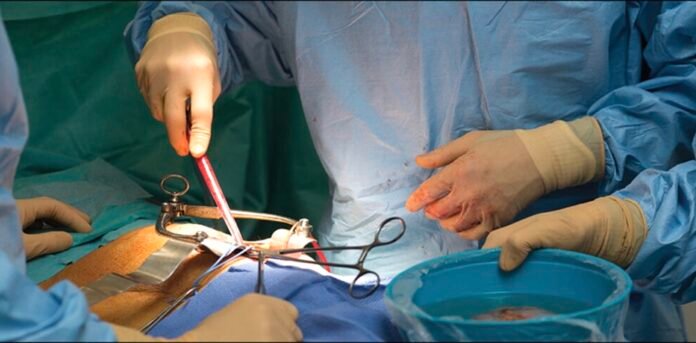Lawmakers in Kenya are investigating the activities of a syndicate alleged to be harvesting kidneys across several hospitals in Eldoret in Uasin Gishu county.
The National Assembly of the East African nation formally launched an investigation into the alleged kidney harvesting practices.
Appearing before the Departmental Committee on Health on Friday, August 29, 2025, several victims recounted how they were coerced into donating kidneys under false pretences, only to suffer long-term health complications.
The committee, chaired by Seme member of parliament James Nyikal, is probing allegations that the organ trade was facilitated by a network of brokers, hospital staff and foreign agents.
Three hospitals – Medihill Group of Hospitals, St Luke’s Orthopedic and Trauma Hospital and Oak Tree Hospital – are at the centre of the inquiry.
Lawmakers questioned their role in transplant procedures involving foreign nationals, particularly Somali patients, some of whom allegedly accessed services through the now-defunct National Health Insurance Fund.
St Luke’s Hospital is alleged to have conducted at least 34 kidney transplants, five involving Somali nationals.
Oak Tree Hospital was identified as the facility responsible for matching donors with recipients, raising concerns over the legitimacy of donor-recipient relationships.
Investigators were told that fake identification documents were used to falsely establish familial ties between donors and recipients.
The probe has exposed a broader underworld of illegal organ trade in Kenya, particularly in Homa Bay and Eldoret where impoverished youth – mostly in their 20s and 30s – are recruited by brokers and paid between KSh300,000 and KSh700,000 (US$2,000-US$5,000) per kidney.
This is a fraction of the estimated US$85,000 value of a kidney on the international black market.
Medical professionals revealed that young men from Rift Valley, Western and Nyanza regions have been approaching Level Four and Five hospitals in Eldoret seeking to sell their kidneys, often unaware of the long-term risks such as chronic pain, high blood pressure and kidney failure.
The illicit trade is reportedly facilitated by clinics and private hospitals that host foreign doctors – including Indian nationals – to perform surgeries.
Victims are escorted by minders and housed in rented properties, with harvested organs allegedly trafficked to overseas markets.
Despite the scale of the operation, Kenya’s Health Act of 2017 does not explicitly criminalize the sale of organs, creating a legal loophole that enables the trade to persist.
Kenyans are now calling for urgent reforms to close regulatory gaps and protect vulnerable populations from exploitation.
The committee is expected to summon more witnesses, including police officials and hospital administrators, as the investigation continues.
The findings could prompt sweeping changes in Kenya’s organ donation laws and enforcement mechanisms.
Source:Africa Publicity








